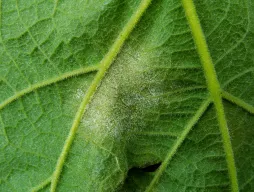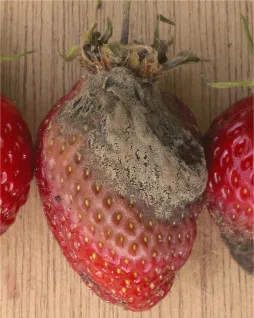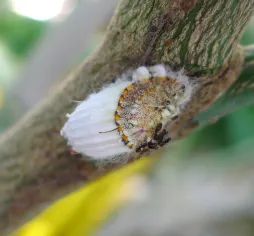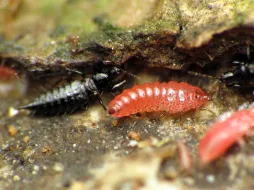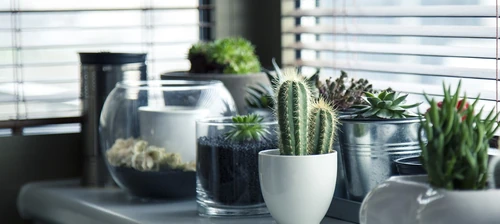Begonia bowerae, a hairy, spotted begonia
Begonia bowerae is a plant of the Begoniaceae family native to Mexico. Its green foliage speckled with brown has given rise to over a hundred cultivars, including the well-known Begonia 'Tiger.
How to recognize Begonia bowerae?
Begonia bowerae belongs to the rhizomatous category of begonias. It is a perennial with a dense, bushy habit, growing to no more than 20 cm high and 40 cm wide.
The white petioles are speckled with brown. They are fleshy and covered with cilia.
Leaves grow alternately. The leaf blade is asymmetrical and has a waxy outline, as in begonia 'Ferox. The green upper surface is streaked with black stripes or spots. These often follow the palm-shaped pattern of the veins. The reverse side is purple.
In its natural habitat, Begonia bowerae flowers at the end of winter. Its pinkish-white flowers are grouped in a cyme. They hatch at the end of a brown, hairy stalk.
The plant's toxicity is unknown. However, most begonias contain calcium oxalate. This substance is harmful if ingested or if it comes into contact with the skin. If you don't want to take any risks, keep your Begonia bowerae away from pets and wear gloves when handling it.
Our maintenance tips
Begonia bowerae like humidity but have fragile foliage. Rather than misting your plant, place its pot on a dish of moist clay balls.
Watering
Let the soil dry on the surface between two applications of water. Water your Begonia bowerae with non-calcareous water, such as reclaimed rainwater. To avoid water stress, make sure the water is at room temperature.
If you use a saucer or planter, remove any water that stagnates at the bottom. It could rot the roots.
Repotting
In spring, transfer your Begonia bowerae to a larger pot, so that it can continue to grow.
Your Begonia bowerae likes it cramped. Re-pot when the roots escape from the pot or have colonized the entire space.
Choose a pot with holes two or three centimetres wider and deeper than the previous one. Pour a drainage layer (clay balls, gravel, small pebbles, etc.) in the bottom.
Top up with potting soil for green plants, enhanced with perlite or sand. Plant your Begonia bowerae in the center and add substrate.
Top up with potting soil for green plants, enhanced with perlite or sand. Plant your Begonia bowerae in the center and add substrate.
Fertilization
You can stimulate the development of your plant during its growth phase, in spring and summer, with fertilizer.
To promote growth and the appearance of new leaves, give your Begonia bowerae green plant fertilizer.
Prune
To encourage the growth of your Begonia bowerae, prune regularly.
Remove wilted flowers.
If you want your plant to keep a compact habit, don't hesitate to prune it. Cut above a node with a clean, sharp tool, such as secateurs or scissors.
Cutting
Cutting is carried out during the strong growth phase, generally in spring and early summer.
Take a healthy leaf with its petiole. You can separate it from the stem with your hands or with a clean, sharp tool.
Pour a rich, well-draining substrate, such as potting soil for cuttings and seedlings, into a perforated pot. Mist the soil to moisten it.
Make a pilot hole and plant the petiole. Make sure the leaf is in contact with the soil.
Cuttings grow best smothered. Cover the pot with a translucent lid. Aerate for a few minutes a day to prevent rotting, and check that the soil remains moist. You can spray the soil, without wetting the leaves, to increase humidity.
Diseases / Threats
Information
| Family | Begonias - Begoniaceae |
| Type | Begonia - Begonia |
| Species | Begonia bowerae - Begonia bowerae |
| Lifecycle | Perennial |
| Foliage | Evergreen |
| Exposure | |
| Substrat | |
| Planting methods |
In pots In tubs |
| Categories | |
| Tags |
Beginner Flowery Toxic |
| Origin |
Central America |
| Hardiness (USDA) | 11a |
| Leaf color |
|
| Flower color |
|
Discover plants from the same family
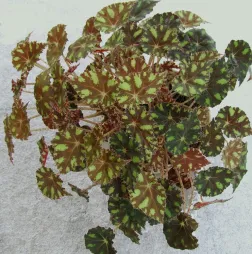
Begonia 'Tiger
Discover

Begonia maculata
Discover
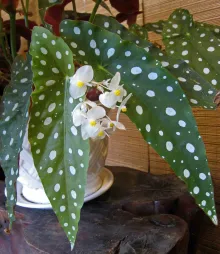
Begonia maculata 'Wightii'
Discover
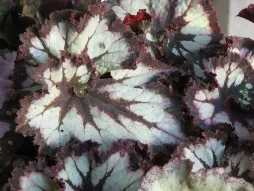
Royal Begonia
Discover












